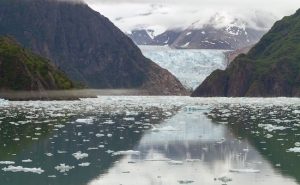Last week, UMBC’s Rachel Brewster’s lab announced that NIH awarded them a two-year Exploratory Research Award to continue work on improving the preservation of organs for transplant. UMBC continues to be on the cutting edge of life-saving research. This week, we take a look at the DNA hunt for cancer to figure out what’s causing a large uptick in the variability of cancer rates and types around the world. We also take a look at a future split-internet, growing plants using seawater, and strange behaviors in the Arctic lakes.
Industry Roundup is brought to you by UMBC’s Division of Professional Studies, offering a broad array of professionally-focused master’s degree and certificate programs that address industry needs while anticipating future opportunities.
The DNA Hunt for Cancer

Cancer is growing and at a varying rates and types around the world. Some countries are noticing spikes in one type of cancer and lower numbers in others. Scientists are turning to DNA to figure out what’s causing this uptick and variability.
The Future: A Split Internet

Former Google CEO predicts that the internet of today will be split into two within the next decade, and China will lead one of them. This news comes on the heels of a controversy around Google’s strategy in China.
Growing Plants in the Desert with Seawater

There is certainly no shortage of seawater in the world, making it a great resource to grow plants in the desert. This is good news considering the world’s food production needs to be increased by 50% by 2050 to feed the world’s population.
Strange Behavior in Arctic Lakes

Greenhouse gases are affecting arctic lakes. They are beginning to hiss, boil, and pop out gas bubbles as big as grapefruits. The result? They are lifting the water surface by several inches. This is the affect of methane gas, and the future of a warmer world could lead to even more dangerous warming.
